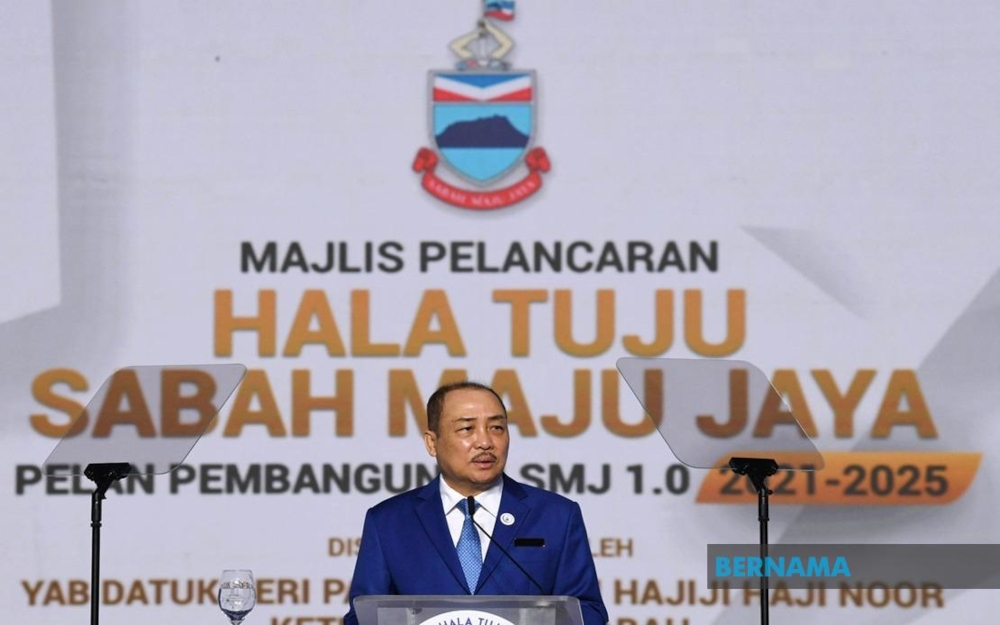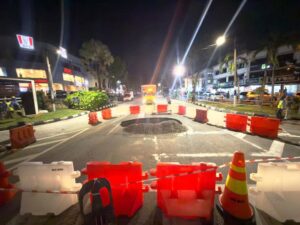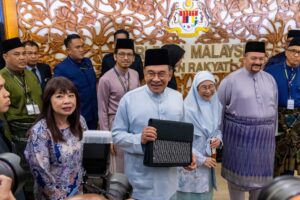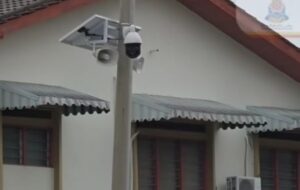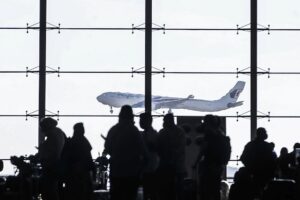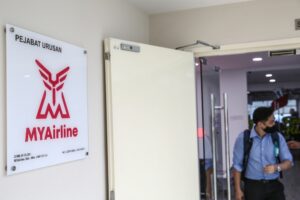KOTA KINABALU, Oct 9 — As caretaker Chief Minister Datuk Seri Hajiji Noor seeks a renewed mandate under the Sabah Maju Jaya (SMJ) banner, the five-year-old development plan touted as his administration’s blueprint for transformation will come under close scrutiny from voters assessing promises against performance.
Unveiled in 2021, the SMJ Development Plan — structured around agriculture, industry and tourism, human capital and people’s welfare, and infrastructure and sustainability — has been the government’s central narrative of progress.
Pro-government officials credit it with steering Sabah through post-pandemic recovery, boosting investment and restoring economic confidence.
But his administration is not without many challenges and criticisms, with some accusing the plan of nothing more than lip service. Here is a summary of some highs and lows of his five years in power.
Economic and social milestones
Under the plan, the state government recorded what it described as “historic” revenue levels of around RM7 billion in a recent year, while investment inflows placed Sabah among the top-tier states for attracting new ventures.
The administration also expanded welfare and education aid: scholarship allocations grew from RM55 million in 2022 to RM128 million this year, while new initiatives such as student flight subsidies, low-income housing and assistance for the hardcore poor were rolled out.
In terms of welfare, education and social aid spending have seen notable increases. Scholarship allocations rose from RM55 million in 2022 to RM128 million in 2025, while assistance schemes such as Bantuan Tunai SMJ, Rumah Mesra SMJ, and flight subsidies for students were introduced to ease cost-of-living pressures and promote mobility among rural youth.
Infrastructure efforts include ongoing maintenance plans, dam projects in Papar and Tawau to ease water shortages, and moves to corporatise the Sabah Water Department to curb leakages and losses.
Political stability
Hajiji’s supporters also point to his ability to hold together a coalition government through a full term — a rare feat in Sabah’s volatile political history — while maintaining a working relationship with the federal administration that secured new funding and gradual devolution of powers under the Malaysia Agreement 1963 (MA63).
Currently Sabah’s longest serving assemblyman — Hajiji maintained a relatively low profile throughout his eight terms until the 2020 state elections where the loosely formed Gabungan Rakyat Sabah coalition (then consisting of Perikatan Nasional, Barisan Nasional and Parti Bersatu Sabah) toppled the Warisan-Pakatan Harapan state government with a narrow margin.
After some deliberations, Hajiji became Sabah’s 16th chief minister but not without some misgivings from Sabah Barisan chairman Datuk Seri Bung Moktar Radin.
The relationship was fraught from the beginning, as Bung threatened to pull support when he was not given the Works Ministry portfolio as agreed upon.
The first crisis was averted when Hajiji gave in but the relationship between Hajiji and Bung remained tense throughout the next few years as the fledgling government stumbled through the rest of the Covid 19 lockdown.
In November 2022, Hajiji led most of its Sabah Bersatu leaders out of Perikatan Nasional and formed the local-based Parti Gagasan Rakyat Sabah, which is aligned to the Pakatan Harapan/Barisan Nasional federal government led by Prime Minister Datuk Seri Anwar Ibrahim.
Shortly after in January 2023, Sabah BN pulled support for the GRS government in a bid to topple him in what is now known as the Kinabalu Move, but in a surprise twist, Pakatan Harapan and a handful of defecting assemblymen from Umno and Pakatan Harapan kept Hajiji in position with more than a simple majority.
Since then, defecting assemblymen has given Hajiji a comfortable two third majority, and earned him some clout with the federal government and securing development funds, infrastructure allocations, devolved powers under MA63.
Persistent infrastructure grievances
Despite the impressive “political kung fu” the GRS government faces sharp criticism over unresolved or slow-moving issues — most notably water supply disruptions despite the many water infrastructure announcements — new dams, water treatment plants, projects underway to improve supply, including Papar’s Kogopon II and Tawau’s dam.
Many residents in both urban and interior areas continue to report unreliable water pressure and frequent outages, with non-revenue water losses remaining as high as 57 to 60 per cent. Delayed or poorly managed projects have drawn complaints, and critics argue that progress has not matched the scale of official announcements.
Critics say that while the state touts macroeconomic growth and policy reforms, public frustration remains rooted in daily hardships —”sick” public projects, unreliable utilities, incomplete roads, or uneven access to basic amenities.
Major residential areas, shopping malls and even five-star hotels in the city centre face water supply issues regularly, while power blackouts are more intermittent. Many complain about the daily cost of living, and the lack of understanding from the political elite.
In rural districts, the Sabah Maju Jaya slogan is sometimes dismissed as more rhetoric than reality. Opposition parties have capitalised on these sentiments, arguing that the benefits of state development are unevenly distributed and that corruption scandals undermine public trust.
Even so, there is acknowledgment of progress in certain areas — especially education aid, housing assistance and renewed investor interest — suggesting that Hajiji’s administration has delivered tangible, if uneven, gains.
Corruption allegations
The ongoing Malaysian Anti-Corruption Commission (MACC) probe into alleged bribe-taking by several assemblymen has also tainted the administration’s image, with questions over the extent of accountability and transparency.
Videos were leaked of almost all of the GRS administration’s leaders including deputy chief ministers, the finance minister, the State Assembly Speaker, and party leaders with most denying wrongdoing. Two have been charged with receiving bribes.
Even without convictions, the damage may have already been done in the court of public opinion.
Heading into the polls, the government’s challenge lies in convincing voters that announced projects and funding will translate into real improvements in daily life. — and that its push for stability, economic growth and local empowerment remains credible amid persistent gaps in basic services.
Whether voters view Sabah Maju Jaya as a genuine roadmap or just another slogan could determine the outcome of the polls.
